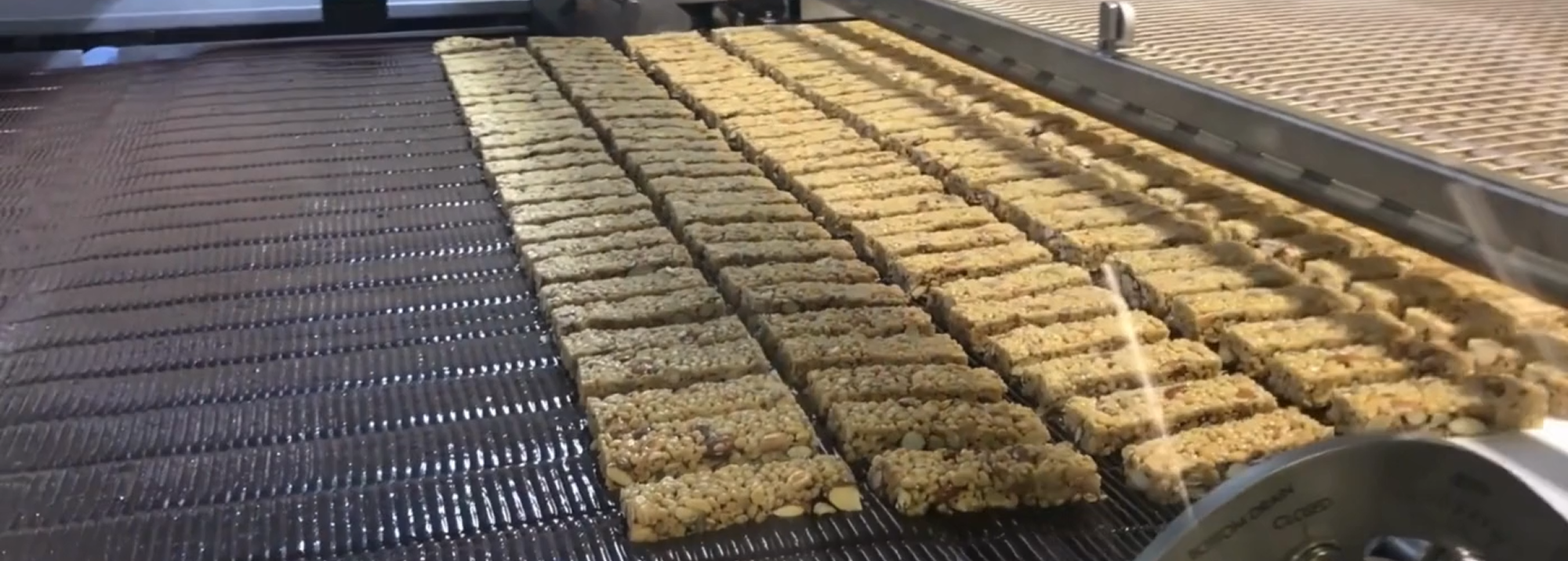The complete guide to protein bar manufacturing process: from concept to consumer
The protein bar industry has transformed from a niche health food market into a mainstream snacking revolution. Sanitation has become increasingly crucial, particularly with the growing focus on allergen management.

The protein bar industry has transformed from a niche health food market into a mainstream snacking revolution. Behind every perfectly formed, nutritionally balanced bar lies a sophisticated manufacturing process that combines precision engineering, food science, and stringent quality control. Understanding this process isn't just about satisfying curiosity – it's crucial for anyone involved in food manufacturing who wants to meet growing consumer demands while maintaining the highest standards of quality and safety.
The foundation: pre-production planning
Success in protein bar manufacturing begins long before the first ingredient enters production. The pre-production phase demands meticulous planning that can make or break the final product's success. At the heart of this planning lies recipe development – a complex balance of nutritional goals, taste requirements, and manufacturing practicality.
Key ingredients like proteins, whether from whey, soy, or emerging plant sources, must be carefully selected not just for their nutritional profile, but for their behavior during manufacturing. The choice between cold-formed or baked bars, for instance, significantly impacts ingredient selection. Binders like honey, rice syrup, or nut butter play a crucial role in both texture and manufacturability, while their temperature sensitivity demands precise handling during production.
Modern manufacturing facilities must also consider allergen management from the earliest planning stages. With multiple products often sharing production lines, manufacturing plans must incorporate thorough cleaning protocols and production scheduling that minimizes cross-contamination risks while maximizing efficiency.
Core manufacturing steps: where science meets production
Mixing and forming: the critical phase
The mixing and forming stage represents the true art of protein bar manufacturing. Here, timing is everything. Ingredients must be incorporated in precise sequences under carefully controlled conditions. Temperature control becomes particularly crucial – too warm, and binders might become too fluid; too cold, and mixing becomes inefficient.
Modern forming systems, particularly cold forming technology, have revolutionized this phase. Cold forming preserves ingredient integrity while ensuring consistent texture throughout the product. These systems can maintain precise bar weights and shapes while handling challenging ingredients like nuts or dried fruits without degradation.
The process requires constant monitoring of critical parameters. Moisture content, in particular, must be carefully controlled as it affects not only the immediate forming process but also the final product's texture and shelf life. Advanced systems now incorporate real-time monitoring and adjustments to maintain optimal conditions throughout production.
Precision cutting and cooling
Once formed, the protein bar mass enters the cutting phase, where precision becomes paramount. Modern ultrasonic guillotine systems provide clean cuts without deforming the product, ensuring consistent size and weight while minimizing waste. These systems can quickly adjust to different product specifications, enabling efficient production of various bar sizes on the same line.
The cooling process that follows is far more complex than simply reducing temperature. Modern cooling tunnels must create the perfect environment for bars to set properly while preventing unwanted moisture condensation. This requires sophisticated control of both temperature and humidity throughout the tunnel's length.
Proper cooling affects not just the immediate product quality but also its long-term stability. The cooling profile must be carefully designed to achieve the desired texture while ensuring the product remains stable throughout its shelf life. This is particularly crucial for coated bars, where improper cooling can lead to quality issues like bloom or poor coating adhesion.
Enrobing and coating excellence
For bars requiring coating, the enrobing process adds another layer of complexity to manufacturing. Temperature control becomes critical again – chocolate and compound coatings must be perfectly tempered and maintained at precise temperatures to achieve proper coverage and appearance.
Modern enrobing systems provide consistent coating thickness while minimizing excess product loss. The best systems feature removable tanks and components for thorough cleaning between production runs, essential for maintaining quality when switching between different coating types or managing allergens.
Quality control and food safety: the manufacturing backbone
Quality control in protein bar manufacturing isn't a single step – it's an integrated system spanning the entire process. Modern facilities employ continuous monitoring systems that track critical parameters in real-time, from temperature and moisture content to metal detection and weight consistency.
Sanitation has become increasingly crucial, particularly with the growing focus on allergen management. Today's manufacturing equipment must be designed for easy cleaning and inspection, with tool-less disassembly and accessible surfaces. Regular environmental monitoring helps verify the effectiveness of cleaning protocols and identify potential issues before they affect product quality.
Equipment and technology: enabling manufacturing excellence
The evolution of protein bar manufacturing has been driven by advances in equipment design and technology. Modern manufacturing systems emphasize hygienic design, with smooth, crevice-free surfaces and strategic drainage points that prevent product accumulation and facilitate thorough cleaning.
Automation has transformed production efficiency, from ingredient handling through to packaging. Advanced control systems now provide comprehensive production data, enabling real-time adjustments and predictive maintenance. This technology integration helps maintain consistent quality while maximizing productivity.
Future-proofing protein bar manufacturing
The protein bar manufacturing industry continues to evolve, driven by changing consumer preferences and technological advancement. Plant-based proteins are creating new manufacturing challenges that require innovative solutions. Sustainability considerations are pushing manufacturers to reduce waste and energy consumption while maintaining product quality.
The future promises even greater integration of smart technologies, from IoT-enabled equipment monitoring to AI-driven quality control systems. Success in this dynamic market requires staying current with these advances while maintaining unwavering focus on product quality and safety.
Manufacturing protein bars successfully demands attention to detail, investment in proper equipment, and commitment to continuous improvement. As consumer demands evolve and technology advances, manufacturers who can balance innovation with proven manufacturing principles will lead the industry forward, producing high-quality, consistent products that meet both consumer expectations and regulatory requirements.